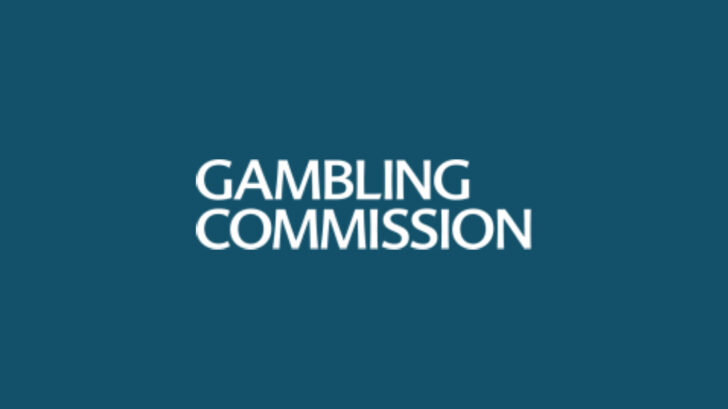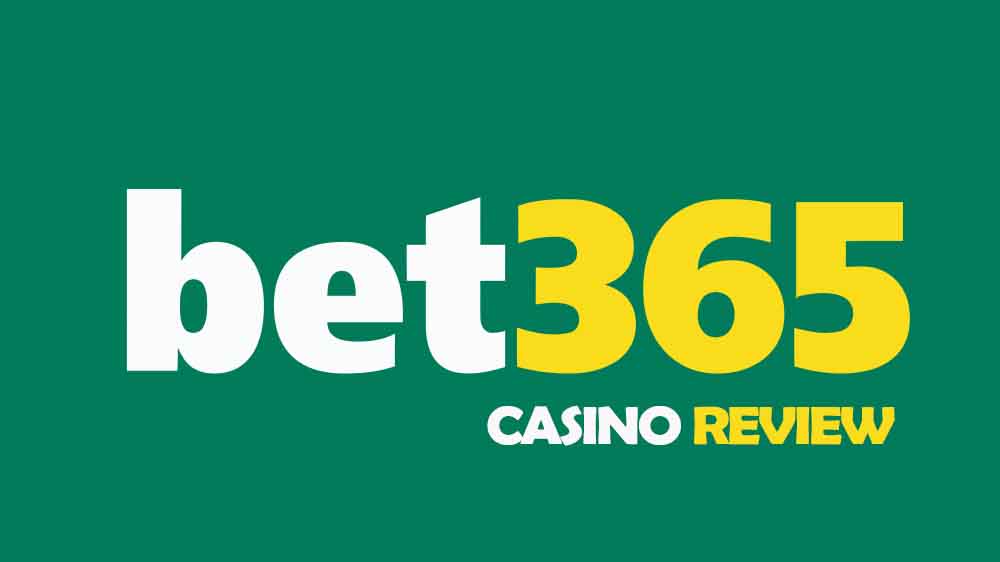United Kingdom Gambling Commission Overview

The United Kingdom Gambling Commission (UKGC) is one of the most prestigious regulatory bodies in the online gambling industry. It distributes plenty of licenses to online operators that want to enter the United Kingdom gambling market. In this United Kingdom Gambling Commission overview we break down all the need to know information about the regulatory body.
United Kingdom Gambling Commission Overview: An Introduction
The world’s largest online gambling market is in the United Kingdom. Its magnitude dwarfs that of all other gaming markets in Europe and the West. The UK gaming market is the most prestigious and upholds its high standards because of its reputation. Casino and game providers must obtain a licence from the United Kingdom Gambling Commission (UKGC) in order to operate in the UK gambling industry.
The organisation in charge of regulating gambling in the country is the UKGC. Although obtaining a UK gambling licence is extremely challenging, it is also the most desired seal in the online gaming sector. The operator must provide extensive documentation and be totally transparent in the eyes of the Commission. Additionally, all operators are required to adhere to the stringent guidelines and standards established by the UKGC once they have obtained the coveted licence. Everything you need to know about the United Kingdom Gambling Commission is covered in this article. Once you have read through it, you will be able to play the latest jackpot ratings without needing to second-guess the safety of a casino site.
Overview
A non-departmental public entity (NDPD) of the British government is the United Kingdom Gambling Commission. It is in charge of policing gambling and overseeing gaming legislation in the United Kingdom. The UKGC regulates a wide range of gaming options, including lotteries, casinos, slot machines, bingo, sportsbooks, arcades, and bingo. It also includes the rules governing online gambling, but not spread betting.
The “Gambling Act of 2005” served as the legal foundation for the UKGC. By ensuring that gaming is lawful and ethical, it serves to protect both players and the general public. The UK National Lottery is one of the numerous gambling-related topics covered by the UKGC. It grants licences to online operators and safeguards players and the general public from the negative effects of both online and offline gambling. The UKGC licences are extremely challenging to obtain and demand operators adhere to the highest standards. Operators who fall short of the standards and specifications for acquiring a UKGC licence are subject to sanctions. We look at the history of the United Kingdom Gambling Commission before delving deeper into how it has grown to be probably the most significant gambling regulatory agency in the world.
UKGC History

The Gambling Act of 2005 authorised the creation of the UKGC. However, it didn’t fully assume its powers until 2007—just two years later. The British Gaming Board was superseded by the Gambling Commission. It includes several different kinds of gambling, such as:
- Arcades
- Betting
- Bingo
- Casinos
- Gaming machine providers
- Gambling software providers
- Lottery operators
- Remote gambling that uses British-based equipment
- The National Lottery
The Department for Culture, Media, and Sport is the sponsor of the Commission, a non-departmental public entity. The three main goals of the gaming Commission have been to ensure that gaming is not connected to crime, to maintain player safety and fairness, and to stop young people and other vulnerable groups from being harmed by gambling.
The UKGC began policing the National Lottery on October 1st, 2013. As lottery betting was incorporated into the Gambling Commission, it absorbed the previous National Lottery Commission. Additionally, it is in charge of remote gambling, which primarily refers to online betting. In 2014, the UKGC strengthened its position as the governing body for online gambling in the country, making sure that any operator operating there illegally lacked a UKGC licence. The Gambling Commission has specific responsibilities to prevent things like gambling-related crime, money-laundering, financing of terrorism, and more.
UKGC Responsibilities
The UKGC has a variety of duties and authority over operators and gambling establishments. As previously stated, it places a high priority on ensuring player safety and fairness. Since the 2005 Act, the Commission has established severe guidelines for engaging in fair play, anti-money laundering, and responsible gaming. In contrast to other jurisdictions, the regulatory body is transparent and well-governed.
The Commission’s numerous demands include providing players with a safe and secure environment. Because of this, getting a gaming licence is very challenging for casinos and other gambling businesses. Additionally, the operators risk sanctions and total expulsion from the United Kingdom online casino market if they violate the license’s terms and conditions.
Any gamers who sign up for a casino or play a game from a provider with a UKGC licence can feel secure knowing that they are in a secure environment because of the tight standards. The leading casinos and service providers are delighted to follow the tight guidelines established by the Commission and to help the UK gaming industry in general.
Gambling Act of 2014
The Commission assumed control of internet casinos under the 2005 Act. To promote a safer environment for remote gaming, new regulations were established in 2014. Only businesses with a United Kingdom Gambling Commission licence were permitted to legally operate in the market, according to the new regulations. Operators outside of the UK could previously advertise and offer their services legally as long as their headquarters were in the EEA or another country on the whitelist. Alderney, the Isle of Man, and Tasmania were among them.
The licencing specifications were modified as a result of the new legislation in 2014. Operators must have one or more licences from the Commission in order to advertise or conduct business in the UK, according to the Commission. A 15% gambling levy on gross gaming winnings from UK residents was also imposed by the new law.
United Kingdom Gambling Commission Licenses

The gaming industry in the United Kingdom may be the most well-known worldwide. Since serving the UK market has certain advantages, several operators strive to get a UKGC licence. There are 2,439 licenced gambling operators in the UK, 599 of which provide online services.
The Gambling Commission issues a wide range of various licences. Even if they have a licence, operators are still need to abide by the tight guidelines and laws put forth by the UKGC. The regulatory body’s job is to keep an eye on license-holding operators.
The acquisition of one or more local licences is one of the prerequisites for operators based in the United Kingdom or providing services to British clients. We will see some of the several licences that the UKGC issues below. A licence can be obtained in roughly 16 weeks on average.
- Remote Casino Operating License – a permit that allows operators to offer casino games remotely – for instance, via a website. This covers online slots, poker, table games and live casino games.
- Remote General Betting Standard Virtual Events License – a permit that allows operators to offer fixed-odds betting services on virtual events (such as virtual horse racing). Betting on real events is not permitted with this license.
- Remote Bingo Operating License – a permit that allows operators to offer online bingo games.
- Remote General Betting Standard Real Events License – a permit that allows operators to offer fixed-odds betting services on real events (such as sports). This does not cover any virtual sports.
- Remote Pool Betting License – a permit that allows operators to offer pool betting services. This covers any bets that are from a group of people, with each winner taking a portion of the winnings.
How to Obtain a UKGC License
Operators and game developers will be judged on two primary factors in order to receive a UKGC licence: their desire and capacity to respect the licencing goals and their fitness to engage in the permitted activities.
The company must provide all of its previous and present financial information regarding its employees, integrity (an appraisal of their criminal histories), and expertise in order to pass the suitability assessment. Therefore, a UKGC licence application demands a tonne of paperwork.
Depending on the organisation requesting for the permit, different licences may be needed. A solitary proprietor would simply have to present their identification papers. On the other side, a business would need to present a management structure and an ownership structure diagram. The Commission will be able to identify all parties involved in the corporation.
Many online businesses operate with UKGC licences but are not headquartered there. Any offshore entity must have a complete credit record and a local gambling licence from a different jurisdiction.
The organisation must also give a thorough explanation of the licence it wants to get. For instance, if an organisation wants a remote licence, it must submit paperwork on the operational model, software, and policies and procedures unique to remote gaming.
In any event, it can take up to 16 weeks to get a licence from the UKGC. Before a licence is issued, however, sole proprietors or other businesses must submit a tonne of paperwork and effectively prove their transparency to the Commission.
UKGC License

The largest online gaming market worldwide is in the United Kingdom. The industry’s total gross gaming yield for the six-month period ending in September 2020 was £5.9 billion. The remote sector contributed £3.1 billion (52.3%) of the total. By the conclusion of the fiscal year 2020–2021, the total gaming yield had risen to £6.9 billion. It revealed an increase of 18.4% from the prior trimester. Online casinos produced over £4 billion of that.
Online gambling grew in popularity in the UK market during the lockout. The number of internet casinos increased as a result of the decline of brick-and-mortar casinos. Italy was the United Kingdom’s main European competitor in 2020. Gross gaming income from online gambling in Italy reached $2.47 billion. That sum is less than a third of what the UK has. Therefore, it is simple to understand why the gaming industry in the United Kingdom is so well-liked. Operators are permitted to access the UK gaming industry if they have a licence from the United Kingdom gaming Commission.
UKGC Compliance
Even after achieving the prerequisites for a licence from the Commission, businesses must adhere to a rigid set of regulations. Licensees are obligated to a lengthy document known as the LCCP, which they must carefully abide by. Particularly when compared to the regulations of other jurisdictions, the requirements for the operators are stringent. The advantage of a UKGC licence, however, is the ability to serve the UK gambling industry and the prestige of the permission, which attracts numerous players from around the world.
When it comes to its laws governing know-your-customer (KYC) and anti-money laundering (AML), the Commission is quite strict. It continuously observes licence holders to gauge their dedication to the mission. There are numerous significant components in the LCCP documentation. We have included a few of the requirements from the document below:
- Technical standard and equipment specifications
- Protection of customer details and funds
- Banking
- Transparency in games and commitment to fairness
- Game types and rules
- AML provisions
- Verification of every active customer
- Responsible placement of digital ads
- Financial requirements
- Protection of vulnerable players and expulsion of underage players
- Marketing
- Complaints and disputes
UK Gambling Market – The Negatives
There are some drawbacks to the Commission that outweigh all of the advantages it offers the online gambling industry. The absence of services using cryptocurrencies is the largest restriction. The UKGC does not forbid the use of cryptocurrencies as money. However, the Commission is not drawn to cryptocurrencies’ anonymity. As a result, it has made it nearly hard for operators to accept them without violating any of the LCCP’s AML regulations. It does not appear realistic that the Gambling Commission will amend its regulations on cryptocurrencies anytime soon for any UK gamers that utilise cryptocurrency.
The UKGC’s Enforcement Actions

The Commission places a premium on player safety. Its controversial yet audacious move to significantly lower the maximum amount available at fixed-odds betting terminals was one of its most notable accomplishments. The Commission estimated that British gamers were collectively losing roughly £2 billion a year playing games like roulette and blackjack. The maximum bet was decreased by the Commission from £100 to £2.
Likewise, the UKGC has already shown that it is prepared to impose strict penalties on any operators who fail to uphold the LCCP’s requirements. Operators face severe financial penalties for noncompliance.
One of the first companies to experience the Commission’s fury was Camelot Group. The UK National Lottery operator missed a fake National Lottery ticket in 2009. They received a £3 million fine from the Commission in December 2016. A Camelot employee in the fraud department colluded with a member of the public to claim a £2.5 million prize, according to the findings of a police inquiry.
Another well-known remote operator in the UK, William Hill, was also penalised by the Commission in February 2018. Due to several instances of failing to prevent money laundering, the operator was entitled to a £6.2 million penalties.
32Red received a £2 million sanction from the Commission in June 2018 for failing to monitor a customer who was a gambler in need of assistance. Over the course of two years, the customer spent more than £758,000, yet his net income was only £2,150 a month.
Ladbrokes Coral was also assessed a £5.9 million fine by the Commission for breaching its social and anti-money laundering obligations. An inquiry revealed that between November 2014 and October 2017, the business failed to protect problem gamblers and adhere to anti-money laundering regulations.
Future of United Kingdom Gambling Commission
Although it is the strictest regulating authority in the world, the UKGC is not without faults. The Gambling Act of 2005 first established it, and the 2014 amendments further amended it. The most recent provisions were implemented in 2021, but further regulations are anticipated in the years to come as cryptocurrencies and virtual gaming become more commonplace.
The Bottom Line
Now that you have read through our United Kingdom Gambling Commission overview, we hope that you have a better understanding of why it is set up and how it works. Essentially, the MGA is there to assist and protect players from sites that are up to no good. If you want to play the hottest jackpot games, it is advised to search for sites that are licensed by the UKGC.
Click here to visit the 22BET Casino to discover a brand new world of online gambling














